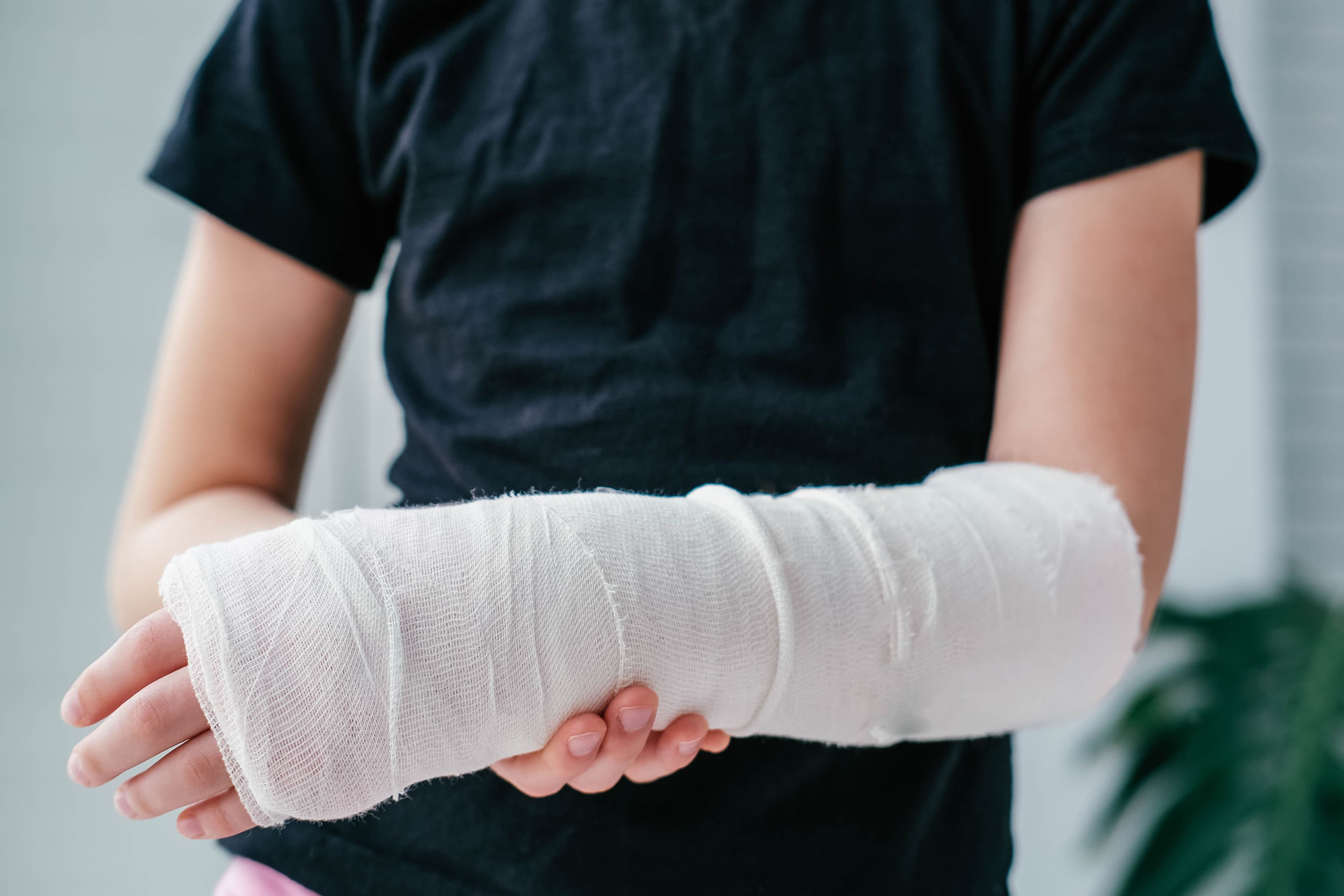$85,000
Personal Injury

$1,800,000
Car Accident

$1,000,000
Car Accident

$395,000
Car Accident

$300,000
Car Accident

$145,000
Car Accident

$140,000
Car Accident

$100,000
Car Accident

$100,000
Car Accident

$90,000
Car Accident

$250,000
Motorcycle Accident

$100,000
Motorcycle Accident

$100,000
Motorcycle Accident

$100,000
Bicycle Accident

$100,000
Bicycle Accident

$100,000
Pedestrian Accident

$300,000
Boating Accident

$300,000
Dog Attack

$100,000
Dog Attack

Cycling: A Healthy Choice With Unexpected Risks
Bicycling is a healthy, cost-effective, and eco-friendly way to get around. But every year, thousands of cyclists are injured in accidents—often because of negligent drivers or unsafe road conditions. Even a low-speed collision can result in severe injuries for cyclists, who have little protection against the force of a car or truck.
If you or a loved one has been injured while riding a bicycle, you’re not alone. The days and weeks after a crash can be overwhelming, but knowing your rights and taking the right steps can make all the difference in your recovery.
Common Causes of Bicycle Accidents
Bicycle accidents are most often caused by:
- Driver Inattention or Distraction: Motorists who are texting, talking on the phone, or simply not looking for cyclists at intersections and when changing lanes.
- Failure to Yield: Many collisions occur when cars make left or right turns without noticing a cyclist’s right of way.
- Doored: A driver or passenger opens a car door into the path of an oncoming bike.
- Unsafe Passing: Vehicles passing too closely or “buzzing” cyclists, causing loss of control.
- Speeding: High speeds increase both the risk and the severity of crashes.
- Road Hazards: Potholes, debris, uneven pavement, poor lighting, or unclear signage.
- Driving Under the Influence: Alcohol or drug use impairs reaction time and judgment.
- Aggressive or Reckless Driving: Including tailgating, swerving, or making sudden stops in bike lanes.
Many of these accidents could be prevented with greater awareness, respect for traffic laws, and better infrastructure.
Common Injuries Suffered by Cyclists
Cyclists are vulnerable, and injuries can be severe—even if you’re wearing a helmet and protective gear:
- Broken bones (arms, wrists, collarbones, legs)
- Head injuries and traumatic brain injuries (TBI)
- Spinal cord injuries and paralysis
- Cuts, scrapes (“road rash”), and deep lacerations
- Dental and facial injuries
- Internal organ damage
- Sprains, strains, and soft tissue injuries
- Emotional trauma and anxiety about riding again
Some injuries may require surgery, rehabilitation, or long-term care. Prompt medical attention is essential—even for seemingly minor injuries.
What To Do Immediately After a Bicycle Accident
- Move to Safety: Get out of the roadway if you can do so safely.
- Call for Help: Dial 911 for emergency medical assistance if needed. Request police to the scene, even if injuries seem minor.
- Exchange Information: Get the driver’s name, contact details, license plate, and insurance information. Get contact info for any witnesses.
- Document the Scene: Take photos of your injuries, the accident scene, vehicles, your bicycle, and any road hazards.
- Do Not Discuss Fault: Avoid making statements about fault to the driver, police, or witnesses.
- Preserve Your Bike and Gear: Don’t repair or alter your bicycle, helmet, or clothing—they may be important evidence.
- Get Medical Care: Some injuries, like concussions, may not be obvious right away. Always see a doctor as soon as possible.
Prompt action protects both your health and your legal rights.
Your Legal Rights After a Bicycle Accident
Cyclists have the same rights to the road as motorists. If you’re injured because of someone else’s negligence, you have the right to seek compensation for:
- Medical bills: Emergency care, surgeries, therapy, medication, and ongoing treatment.
- Lost income: Wages lost while you recover, plus any future earning potential lost because of your injuries.
- Pain and suffering: Physical pain, emotional distress, anxiety, and loss of enjoyment of life.
- Property damage: Repair or replacement of your bicycle, helmet, phone, and other gear.
- Disability or disfigurement: Permanent injuries that impact your daily life.
Depending on your state, you may also be entitled to damages for emotional trauma, counseling, and other losses.

Common Challenges Cyclists Face After a Crash
Unfortunately, cyclists sometimes face unfair biases:
- Insurance companies may try to blame the cyclist or claim your injuries are minor.
- Police reports can be inaccurate if the officer didn’t witness the crash.
- Drivers may deny responsibility or offer incomplete information.
- Physical recovery and trauma can make it hard to focus on paperwork or legal steps.
It’s important to stand up for your rights and to keep thorough records of your medical care, missed work, and how your injuries affect your daily life.
Dealing With Insurance Companies
Most bicycle accident claims involve the driver’s car insurance policy. Insurers may:
- Offer quick, low settlements
- Argue your injuries aren’t as severe as claimed
- Suggest you were at fault, even if evidence says otherwise
Be careful what you say to insurance adjusters. Stick to the facts, avoid recorded statements, and don’t accept any offers without understanding the full value of your claim.
How to Build a Strong Case as a Cyclist
- Gather Evidence: Photos, police reports, witness statements, medical records, and repair estimates.
- Keep a Journal: Document pain levels, emotional effects, and the impact of injuries on your daily life.
- Stay Organized: Track all bills, receipts, and correspondence.
- Understand Local Laws: Some places have specific protections for cyclists, such as “vulnerable road user” statutes or mandatory minimum passing distances.
Advocacy organizations, legal professionals, and support groups can help you navigate the process.
When Children Are Involved in Bicycle Accidents
Children are especially vulnerable to serious injuries. Parents should:
- Get immediate medical care
- Support children emotionally and watch for signs of trauma
- Preserve evidence and keep records of all care and communication
Frequently Asked Questions
What if I wasn’t wearing a helmet?
You may still have a valid claim. Lack of a helmet does not excuse driver negligence, though it may affect some claims depending on local laws.
Can I recover damages if I was partly at fault?
Many states allow you to recover damages even if you share some blame. Your compensation may be reduced based on your degree of fault.
What if the driver fled the scene (hit and run)?
There may be options through your own insurance policy or other compensation funds. Promptly report the incident to police.
How long do I have to make a claim?
Legal time limits vary by state. It’s important to act quickly to preserve evidence and protect your rights.
Recovery and Moving Forward
A bicycle accident can shake your confidence and disrupt your life, but you are not alone. Focus on your recovery—both physical and emotional. Reach out to supportive friends, family, or advocacy organizations, and don’t be afraid to ask for help.
Understanding your rights and taking informed action can make a significant difference in your healing process and your future on the road.
If you have questions about a bicycle accident or need more information about your options, seek guidance from a knowledgeable advocate or legal professional.
Ready to take
the first step?
We Don’t Charge Upfront. We Don’t
Waste Time. We Just Win.
California Accident or Injury? Let us fight for you!

